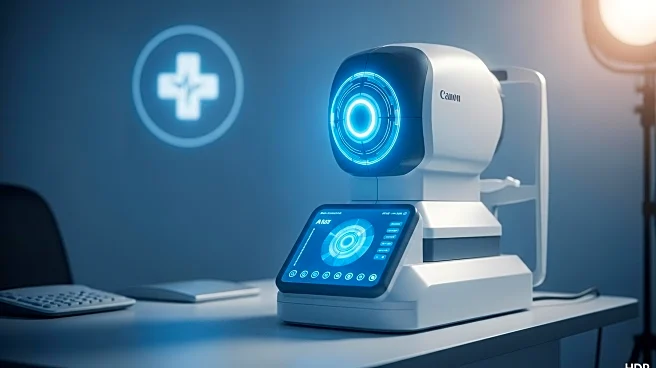What is the story about?
What's Happening?
Northwell Health and Ohio State Wexner Medical Center are leveraging artificial intelligence to diagnose eye diseases such as diabetic retinopathy, glaucoma, and age-related macular degeneration. They have adopted technology from Optain, a startup focused on ophthalmology, which combines a robotic retinal camera with AI. This approach is part of the emerging field of oculomics, which uses the eye as a window into systemic health. Both health systems have invested in Optain, participating in its $26 million Series A funding round. The technology is being used in primary care and cardiology settings, with plans for further implementation.
Why It's Important?
The use of AI in diagnosing eye diseases represents a significant advancement in healthcare, potentially leading to earlier diagnoses and more personalized treatments. This technology could improve management of chronic and acute illnesses, benefiting millions of Americans at risk for diabetic retinopathy. The investment by major health systems indicates strong confidence in AI's potential to transform healthcare delivery. However, the technology is still in its early stages, requiring human oversight to confirm diagnoses, which underscores the need for careful implementation and monitoring.
What's Next?
Optain's technology is set to go live at OSU Wexner Medical Center in October, with plans to expand its use in primary care settings to address access challenges faced by diabetic patients. The company aims to scale its operations in the U.S. market, supported by the recent funding round. As AI continues to evolve, health systems may increasingly adopt similar technologies, potentially leading to widespread changes in diagnostic practices.















